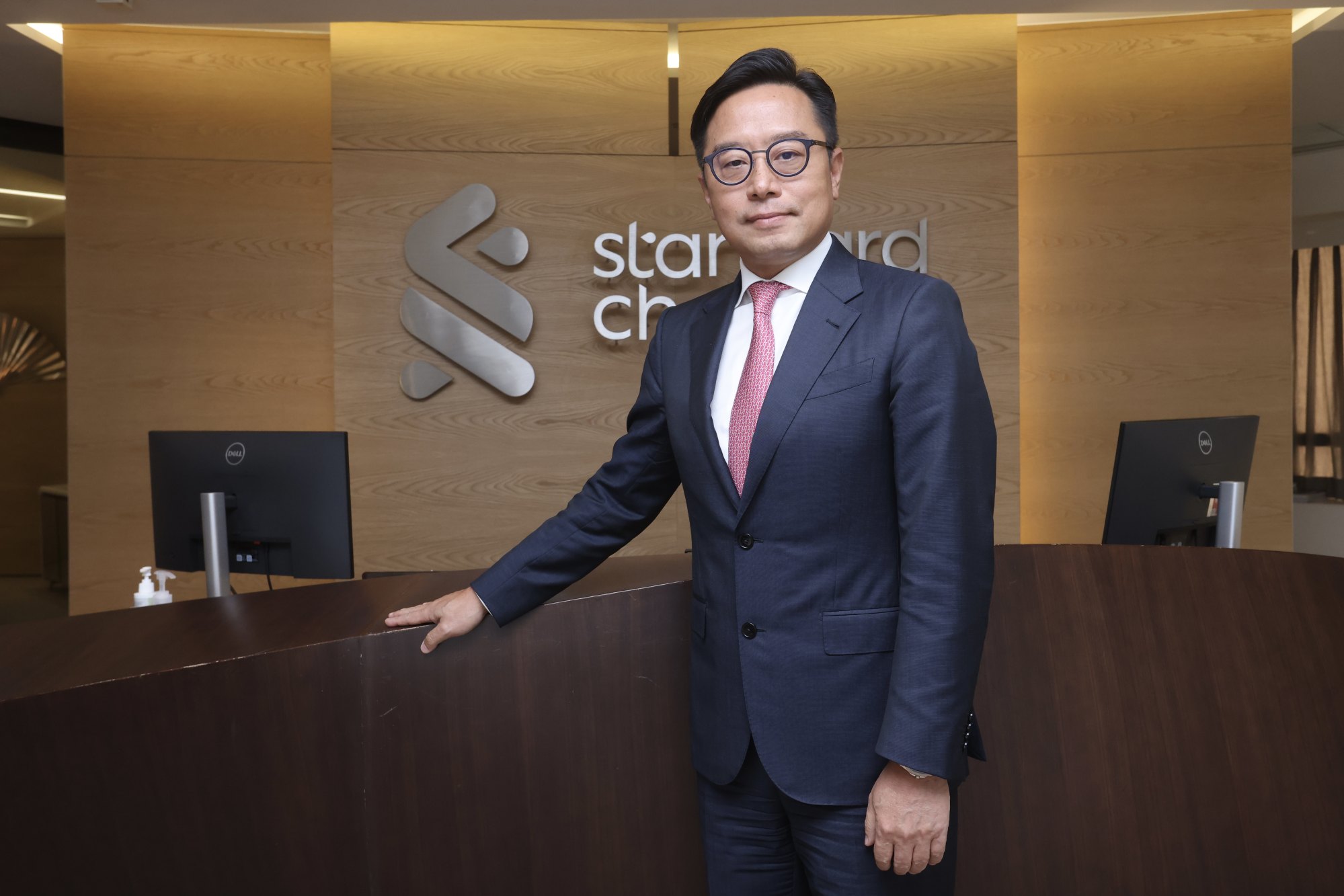[ad_1]
The anticipated US interest-rate cuts, the Hong Kong government’s measures to attract family offices and the coming investment migration scheme will attract investors to yuan-denominated assets this year, according to a senior executive at Standard Chartered Bank.
The lender, one of the three note-issuing banks in the city, believes the Federal Reserve will start cutting rates from the second half of the year by 75 basis points, which will diminish the lure of US dollar assets and draw funds back to Asia, according to John Thang, managing director and head of financial markets for Hong Kong, Taiwan and the Greater Bay Area.
“Such a trend will support capital markets and currencies in Asia,” Thang said at a briefing on Wednesday. “It will also mean deposits, shares, bonds and other investment products denominated in yuan will be more attractive this year.”
Thang expects the US rate cut will support the yuan, which will appreciate by about 2 per cent, to 7 yuan per dollar this year. The yuan, currently trading at about 7.18, has depreciated by more than 13 per cent since March 2022, when the US started increasing rates in its latest rate cycle.

The Fed increased interest rates by 525 basis points in 17 months until July last year, attracting fund flows to US dollar assets. The DXY index, which tracks the dollar against a basket of major currencies, surged 14 per cent from March 2022 to 113.29 in October 2023, its strongest level in 20 years. It currently stands at 102.51, a 10 per cent decline from the peak because of rising expectations of a rate cut since the fourth quarter.
“The tide will turn this year,” Thang said. “We have already seen more investors showing an interest in yuan investment products in recent months.”
Yuan slide feeds rush for safety in Hong Kong bank rates, insurance, US dollar
Yuan slide feeds rush for safety in Hong Kong bank rates, insurance, US dollar
He said Standard Chartered has financial products in mainland China and Hong Kong to meet the increasing demand from customers for yuan-related investments.
Thang said the Hong Kong government’s push to attract wealthy customers from the Greater Bay Area, Southeast Asia and the Middle East to set up family offices would also bring in capital and create demand for yuan products.
Hong Kong has offered a range of incentives for family offices since hosting the Wealth for Good summit in March 2023. This was followed by a tax break in May and the launch of an investment-migration scheme in December to attract family offices.
These initiatives came after Chief Executive John Lee Ka-chiu set a target to attract at least 200 family offices by 2025, on top of the nearly 400 firms already here.
The new Capital Investment Entrant Scheme announced on December 20, better known as the investment-migration scheme, offers a faster route to residency for people who invest at least HK$30 million (US$3.84 million) in stocks, bonds or other assets, excluding residential property.
“The family office and investment-migration scheme will enlarge the pool of liquidity to invest in dim sum bonds and other yuan assets trading in Hong Kong,” Thang said.

He said the connect schemes, which allow cross-border trading of wealth-management products, stocks, bonds and interest-rate swaps, will continue supporting the development of yuan products and solidify the city’s status as the largest offshore yuan trading centre.
Another driving force for the investment markets in Hong Kong this year will be green finance, Thang said, noting many companies are keen to add a green element to their financing activities.
Standard Chartered said it plans to help clients issue and invest in green bonds and green loans, whose proceeds are used for projects to cut down carbon emissions and pollution.
“The demand for green bonds and green loans has been on a rising trend in recent years, and this trend will continue this year,” Thang said.
[ad_2]
Source link
